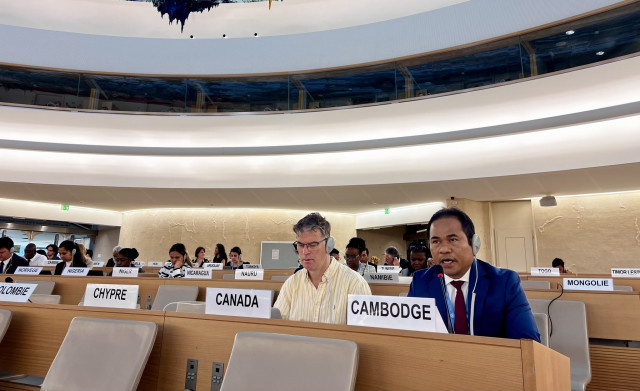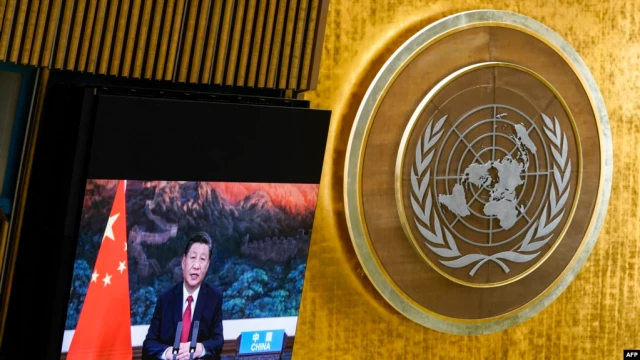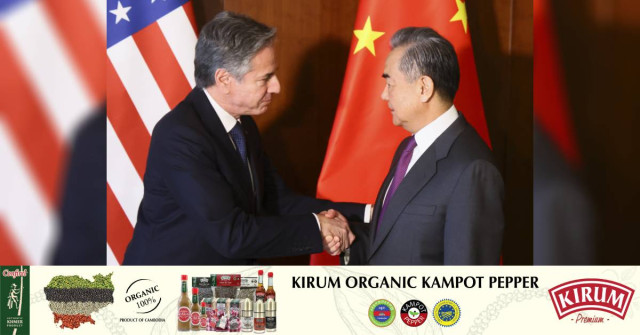UN Election Criticism Shows Bias: Envoys

- By Phoung Vantha
- August 4, 2023 5:11 PM
PHNOM PENH – Cambodia has expressed dismay at criticism of its July 23 general election by United Nations human rights experts.
The country’s mission to the UN in Geneva said the special rapporteurs’ views were wrong, particularly about the facts on the ground, leading to a selective and biased assessment.
The experts said on Aug. 2 that shrinking democratic space affected the election credibility.
The results were extremely disconcerting, very unbalanced and raised major concerns for the international community because of “the ban on the main opposition party, media restrictions and blockages, and harassment of perceived opponents of the ruling elite,” they said.
However, the mission said the “so-called experts” blatantly disregarded the record-breaking turnout of 84.59%, which clearly reflected public trust in the voting process, as well as the Kingdom’s young but progressing democracy.
It said the special rapporteurs had shown their bias and hidden agenda by ignoring the rejection of boycott calls and smear campaigns by extremist opposition factions seeking regime change through undemocratic tactics.
It said the vote, with 18 parties taking part, showed genuine political pluralism and equal opportunities for all. It denied that the vote was unbalanced and had raised major international concerns.
“With 422 international observers from 65 nations and 61 institutions, along with 60,000 political parties' agents and 90,000 independent national observers, closely monitoring the process and affirming its fairness and transparency, one must wonder about the clear-sight or blindness of these so-called experts,” it said.
“Statements from the monitoring teams confirmed that the election was conducted freely, fairly, transparently, peacefully, inclusively, and in strict accordance with the law.
“The claim that the Prime Minister of Cambodia is expected to transfer power to his eldest son is baseless, exposing the rapporteurs’ limited insights of or deliberate refusal to comprehend the legal procedures of the Kingdom.
“The appointment of the premiership follows strictly a rigorous democratic process at the party, electoral and parliamentary levels.”















